House Republican leaders spoke about the legislation that was passed in the 2025 session on this, the session’s final day, and fielded questions from reporters.
Tag: Alex Riley
VIDEO: House Republican media conference 04-24-2025
House Majority Floor Leader Alex Riley (R-Springfield) addressed reporters and took questions regarding this week’s work in the House, and what’s coming next week.
VIDEO: House Republican media conference 04-10-2025
Majority Floor Leader Alex Riley (R-Springfield) discussed the week that just wrapped up and looked ahead to next week in the House.
VIDEO: Missouri House Republican media conference 03-06-2025
Missouri House Republicans talked about legislation that passed this week and looked ahead to next week in the Chamber.
VIDEO: House Republicans’ End of Week Press Conference
Majority Floor Leader Alex Riley (R-Springfield) addressed reporters and answered questions after the close of House business on Thursday.
VIDEO: House Republican media conference
Missouri House Republicans spoke to reporters and fielded questions after the close of legislative work for the week:
Transitional ‘benefit cliff’ legislation would help more Missourians take raises, drop state assistance
A plan that would allow Missourians who are on certain state financial assistance programs to gradually get off of them without falling off a so-called “benefits cliff” is one of the things awaiting action from Governor Mike Parson (R).
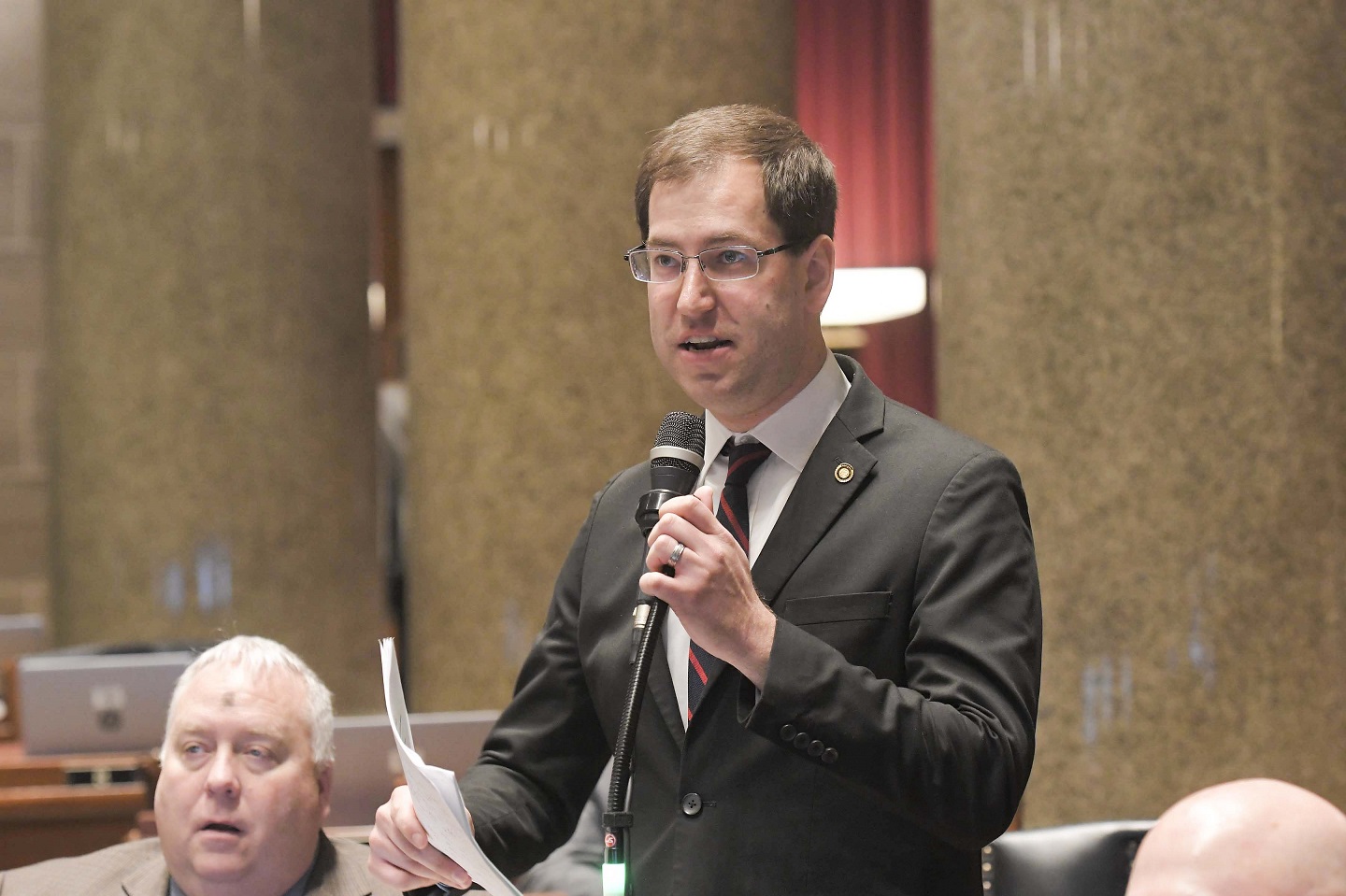
That “cliff” is what policy makers call situations when a person accepts a salary increase that puts them over the income limits for programs like the Supplemental Nutrition Assistance Program (SNAP) or Temporary Assistance for Needy Families (TANF), and what that person then loses in benefits is more than the amount their pay would increase. The result is that often, Missourians on benefits programs are forced to reject promotions and raises, for their own good and that of their families.
The House passed last month a proposed transitional program that would let people get off of state programs incrementally as their income increases.
“Our social safety net system, our welfare system in the State of Missouri, isn’t working. It’s designed in such a way that it really does trap people in poverty and discourages people from trying to get out,” said Springfield Republican Alex Riley, the House sponsor of that legislation. “My goal with the benefits cliff bill was to create a pathway where our welfare system really does what its intended to do, and that’s to serve as a hand up to people to help pull them out of these tough situations that they’re in, and not to serve as an anchor that keeps them in poverty forever and then results in this generational cycle of poverty that unfortunately far too many in our state are in.”
The legislation would apply to SNAP and TANF, and expand and make permanent existing transitional benefits for the child care subsidy program. Benefits to a participant would be reduced relative to their increases in pay until they are making twice the federal poverty rate.
Representative Keri Ingle (D-Lee’s Summit), whose background is in social work, said most Missourians, even if they haven’t been on these programs, could understand having to make the decisions some have had to make, to turn down pay increases.
“I don’t think it’s hard for most people to imagine, in this economy, but, you absolutely wouldn’t want to be in a situation where you had to cut your income,” said Ingle. “One of the great things about this bill is that it allows people to slowly ween off the system. It allows them to be in situations where it doesn’t adversely affect their income to accept a higher paying job, or to have a higher income, to accept a raise, and still have some of those benefits until they can kind of slowly ween off of them and be self-sufficient. We’re really empowering working folks within our state with families to come off the system but to do it in a way that they’re still having all their needs met.”
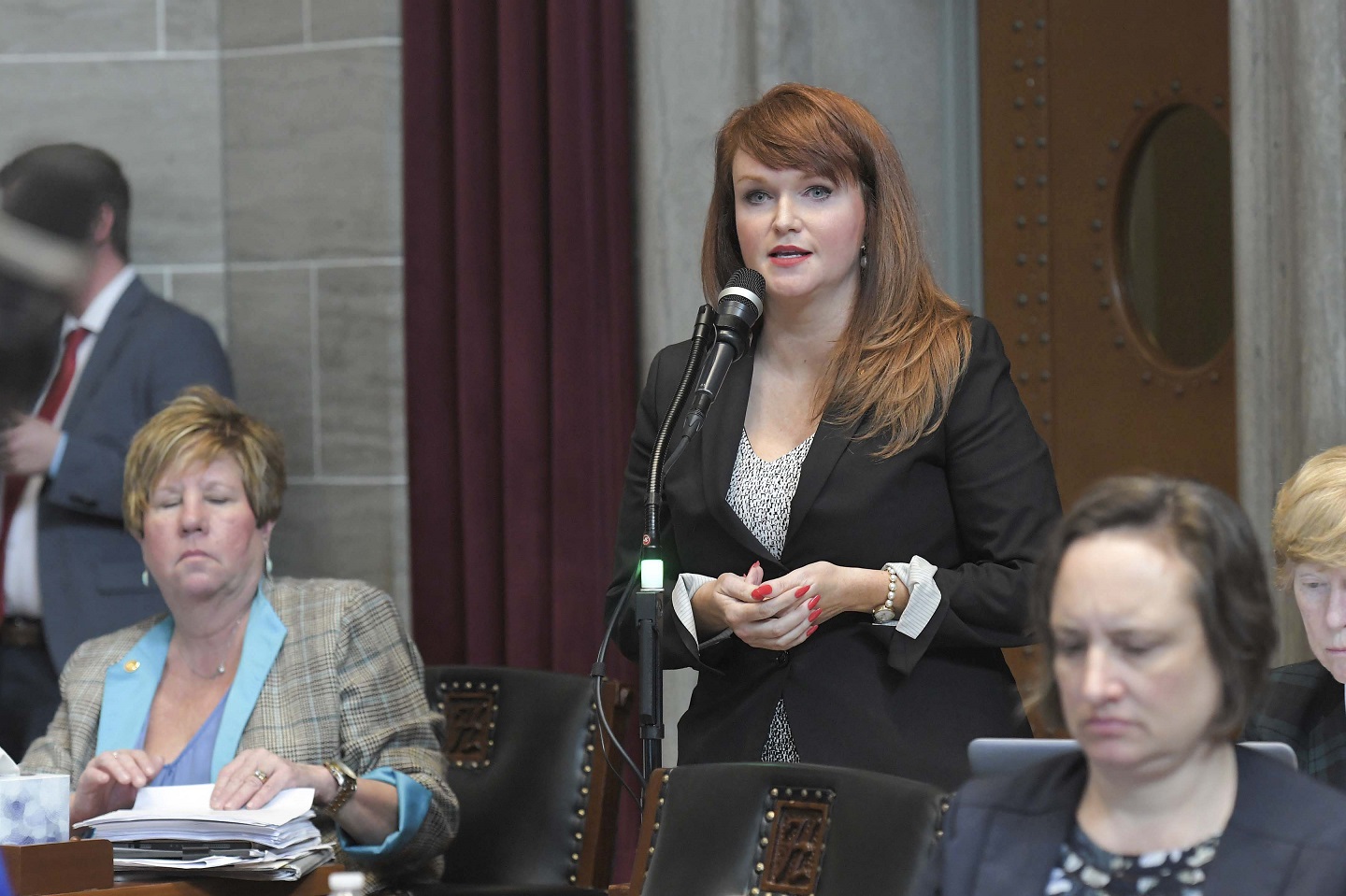
Riley said there’s nothing in Missouri’s various policies and statutes that does what this would do.
“There are some minor benefits cliffs provisions in place for, I think, food stamps, but it hasn’t really worked, so this is a bigger bite at the apple that will, hopefully, do a better job of actually resolving that issue,” said Riley. “Once this has been implemented and is in effect for a few years I expect we’re going to start to see large numbers of people coming off the rolls over time and then once we get a really good opportunity to see how this has played out over time, we’ll have an opportunity to make adjustments if we need to, but hopefully we won’t have to.”
He said the legislation might have to be revisited over time for factors like inflation.
In the end, the legislation received broad bipartisan support. It is a proposal that had been around for several years, sponsored by members of both parties. Even so, Riley said such issues can present a narrow path to success.
He said giving people a way to get off of state benefits is good for them, good for state agencies, and good for the state’s budget.
Ingle said most people who are getting state help don’t want to do so for any longer than is necessary, and they will appreciate this program.
The language passed as part of Senate Bill 106 and Senate Bills 45 & 90, broad bills dealing with various public health issues. Governor Parson could sign either or both of those bills into law, veto them, or allow them to become law without his action. If this proposal becomes law it would become effective on August 28.
Help for low-income and disabled Missourians a focus in final days of session
In the House, proposals that would help Missourians with disabilities, those with low incomes, and new mothers on state assistance, are being given every chance to become law before the end of the session next week. The chamber has voted to add those pieces of legislation to several bills that are still in play in these final days.
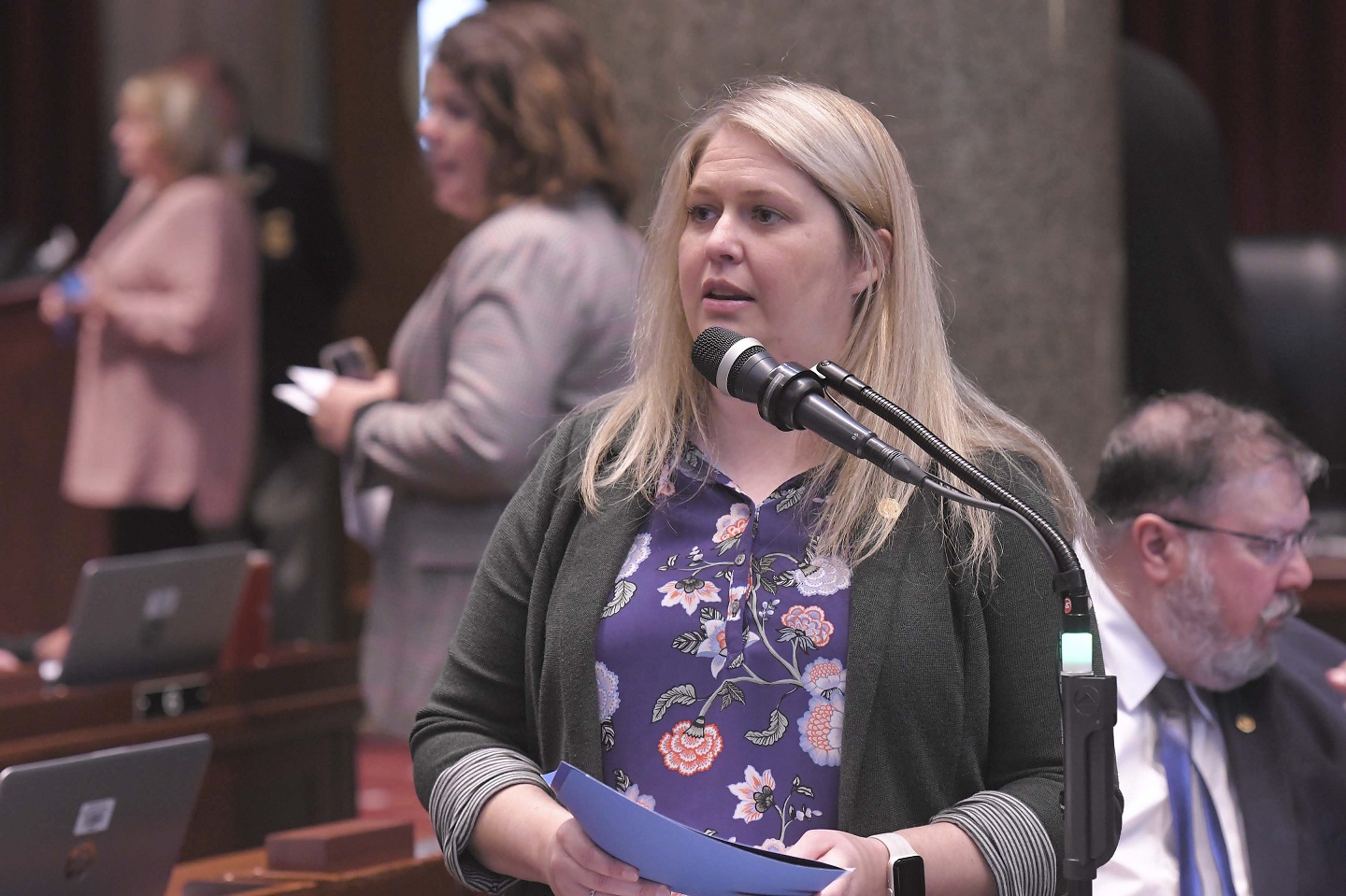
Among those is a transitional program meant to help people get off of state assistance gradually as their income increases. House members say the state’s assistance programs for low-income Missourians trap people in poverty because if they accept a raise that puts them above a program’s limits, they could lose more in state benefits than they gain from a raise.
The measure, sponsored by Representative Alex Riley (R-Springfield), would let people incrementally transition off of state assistance, “Trying to create this transitional system that encouraged people to work, that encouraged people to take those raises and to start to work their way up the income ladder and to hopefully, once this goes into effect, actually reduce the number of people receiving benefits in the state.”
That provision is the product of years of work by members of both parties. Lee’s Summit Democrat Keri Ingle called it a, “great bill … it’s been a bipartisan effort to essentially wean folks off of assistance, whether it’s TANF or SNAP, and make it easier for Missourians to get what they need to be successful working citizens while at the same time making sure that all of their needs are being met.”
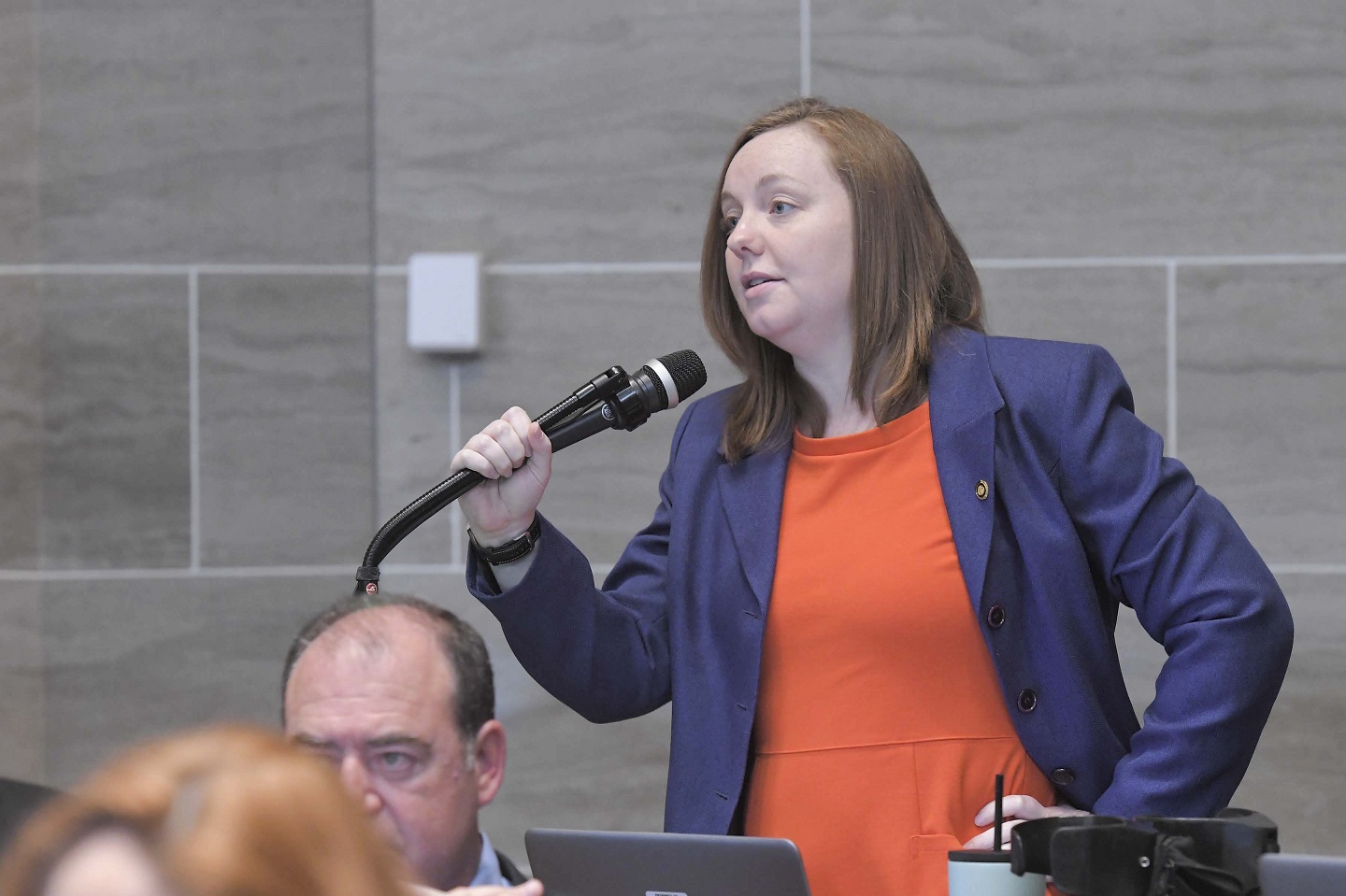
The House has voted this week to add that language to two bills. It did the same for language sponsored by Representative Melanie Stinnett (R-Springfield) that could allow individuals with disabilities to finally be able to advance in their careers without worry of losing state assistance.
The changes to the state’s Ticket to Work health insurance program within MO HealthNet would increase the limit to how much a person can earn before they lose benefits, and would not count up to $50,000 of a spouse’s income toward that limit. It would also direct state agencies to have policies to recruit and keep employees with disabilities and create competitive ways to integrate them into workforces.
“These are people who are actually begging us to work, who want to work, who want to get promotions, who want to seek new jobs. What [this] bill does is address the fiscal cliff, making sure that you don’t have to do quite as much of a tap dance that too many people in our state are doing, where you’re allowed to make so much money but only to a certain point,” said St. Louis Democrat Bridget Walsh Moore.
Walsh Moore, who lives and works with a disability, said the benefits that individuals stand to lose often enable them to have a job in the first place. Things like, “a personal care attendant, your health insurance your additional services and equipment that you receive through the state that allow you to work. This would address and allow you to make more money, put that money back into the economy because if you make more money you’re going to spend more money.”
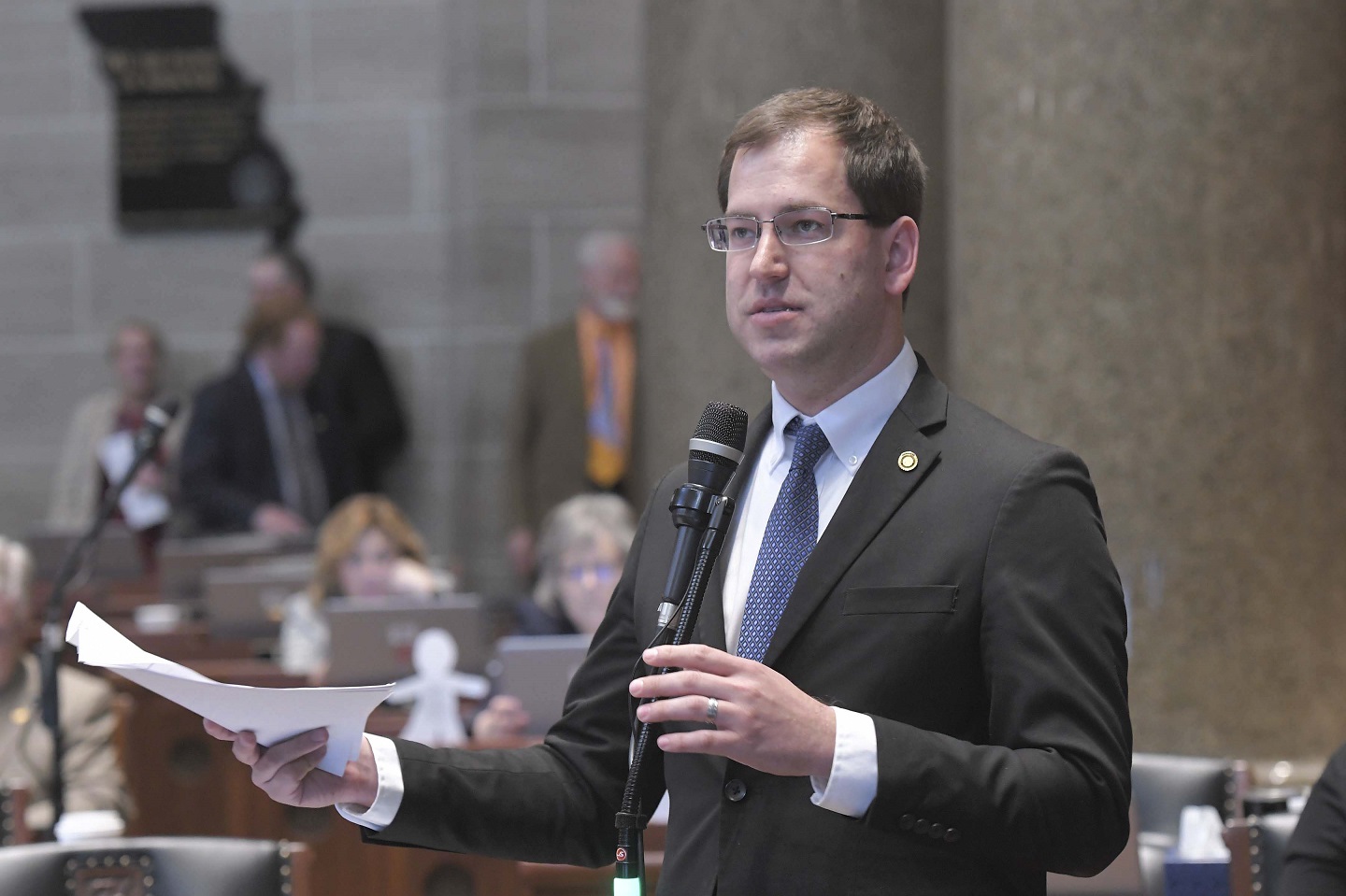
Also supported in the House this week has been a bipartisan plan to extend post-partum coverage under MO HealthNet or Show-Me Healthy Babies from 60 days to a year.
Stinnett, one of several sponsors of this proposal, said, “In 2019, 75-percent of pregnancy-related deaths in Missouri were determined to be preventable; those deaths that were attributed to things like embolism, hemorrhage, infections, concerns with cardiovascular health, chronic health conditions, and there’s one common denominator that can save these women’s lives, and that’s healthcare access.”
Several Republicans have cited this as an important pro-life provision. Representative Darin Chappell (R-Rogersville) said, “We who talk about being pro-life, I don’t know how we do that and then cut off the most vulnerable of our society after 60 days … I believe if we’re ever going to spend money [on benefits programs] it ought to be for those most vulnerable among us. Those very ones that we fought for them to be able to be born. We have to take care of them.”
Representative Tony Lovasco (R-O’Fallon) said even very conservative Republicans like himself could get behind all of these proposals, which don’t expand the state’s assistance programs.
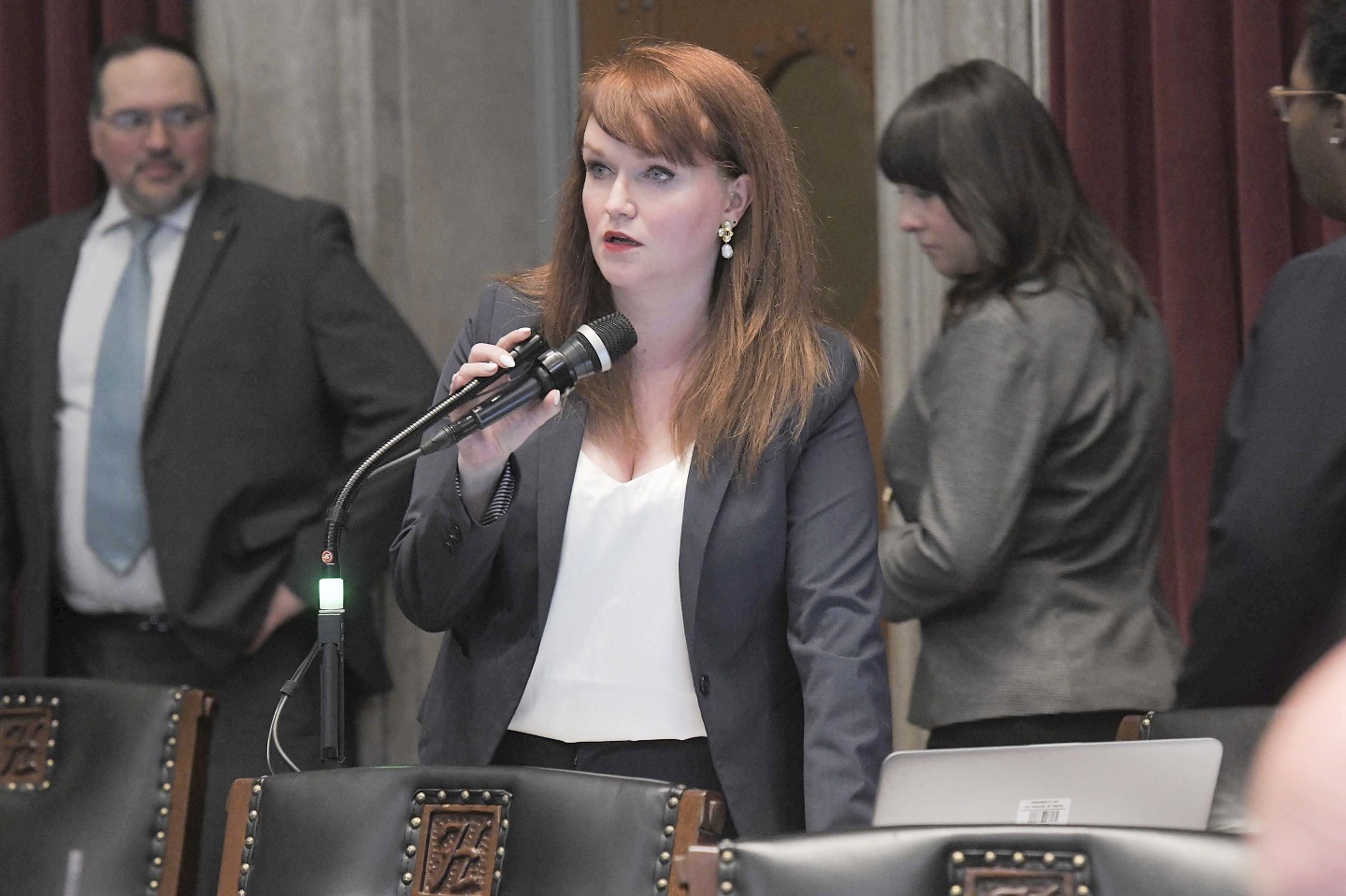
Sponsors are hopeful at least one of the bills containing these provisions will reach the governor’s desk before the session closes at 6pm on May 12.